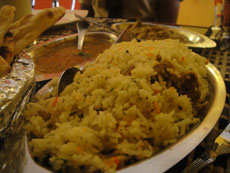An average of 10 tons of potential revenue sinks into the ocean near Malé’s fish market every day, according to NGO Bluepeace.
Fish waste from the nearby market is dumped into the ocean at the end of each day. Bluepeace reports that it can reach up to 8-12 tons in Malé alone.
Fish waste is not really waste at all; it has a number of uses that are not only environmentally friendly, but profitable, the NGO claims.
There aren’t major concerns about environmental impacts or hygiene problems stemming from the disposal of the fish waste, says Bluepeace director Ali Rilwan.
“The waste is dumped into the deep sea, where there is no coral. It gets caught in currents and becomes food for fish. It’s not an environmental hazard.”
He is more concerned with the bacteria and diseases that importing cow dung and chemical-based fertilisers bring in to the country.
Alternative uses for fish by-products
Through a process called anaerobic digestion, organic materials such as fish waste are broken down naturally by bacteria in the absence of oxygen, producing bio-gas as waste products.
This bio-gas is rich in methane and carbon dioxide, and can used for energy production and help in replacing fossil fuels.
The nutrient-rich solids which are left after anaerobic digestion can also be used as fertiliser, although State Minister of Trade, Adhil Saleem, explains that “fish waste alone is not good fertiliser. It must be mixed with other ingredients first.”
Probably the most profitable product, and the easiest to produce from fish waste, is fish feed. This can be used as animal feed and is also in certain foods like masala. The Maldives Industrial Fisheries Company (MIFCO) uses fish by-products for these, especially from yellow-fin tuna.
One of three of MIFCO’s fish processing units, on the island of Lhaviyani Felivaru, processes fish products for export. Dried fish and fish feed are mainly exported to companies in Sri Lanka, but are also sold to the local market.
Fish by-product industry: Problems and solutions
Abdulla Maumoon from MIFCO says although their fish processing unit “was costly [to acquire], it is profitable.”
However the last three years have brought a steady decline in the fishing industry. The company is now downsizing their production of fish from an average of 45 metric tonnes a day to about 15.
“We have brought down production according to the raw material we are getting,” he says.
“We have collectors in the north, south and central regions of the country,” says Maumoon, “and fishermen can go to these collectors in their dhonis and sell it.”
In the Malé fish market not many people seem to know about the possibilities of selling their fish by-products. When asked, most fishermen responded with: “If we could sell it, we would sell it.”
The fact that fish by-products need to first be mixed with other ingredients before being turned into fertiliser introduces another factor of difficulty: transport costs. Saleem explained that the costs of obtaining these other ingredients would be too high since they would need to be imported.
But Ali Rilwan from Bluepeace says the other products needed to make fertiliser can all be found in the Maldives.
“Organic compost can be made with fish waste, seaweed, coconut fibre and even the leaves of some local trees.”
Rilwan estimates the Maldives imports hundreds of thousands of tonnes of fertilisers every year. The chemical-based fertilisers are harmful to the soil and affect the agricultural products they are used on. The amount of money spent on importing things such as cow dung and other fertilisers from countries like India, Sri Lanka and Thailand, is also very high.
The issue of whether fertilisers should be made from fish by-products, and not imported, comes down to a comparison between the cost of importing fertilisers with the costs of producing it locally and mixing it with local ingredients.
It must also be studied which of the two products is more harmful for the environment, and which is more viable in the long term.
Government Response
The government so far has marginalised the fish by-product industry. So far, there have been “a couple of attempts” by the government to process fish waste, according to Minister of Agriculture Mohamed Ali.
State Minister of Fisheries Hussein Rasheed said the government “undertook this project, but it proved not to be profitable.” The machinery is at Kilafushi, and it is not being used.
Dr Rasheed says there is currently “no project at hand” to use fish waste, but “we would be quite happy if somebody undertakes the project. We will provide them with the help we can.”
Saleem says there is a new fish market to be built in Malé and the Ministry hopes to incorporate a fish processing unit, mainly to produce fish feed, in the new facility.
Top image provided by Ali Rilwan at Bluepeace

